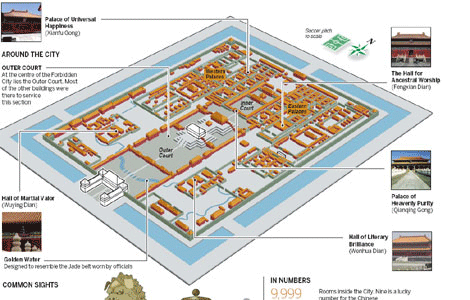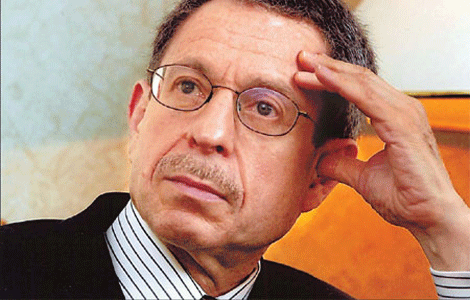Economy
Home is most often where the heart is
Updated: 2011-02-28 10:37
By Du Juan (China Daily)
The Chinese character "jia" (meaning home) on a stele of an elderly nursing home in Wen Ling city, Zhejiang province. Experts say the government is expected to make regulations on the standards and costs of non-profit nursing homes. [Photo / China Daily]
But some call for an improved welfare system for the elderly

BEIJING - China's elderly, faced with a shortage of care home beds, are increasingly resorting to being looked after by their children, a move tacitly approved of by policy makers.
One retiree who is happy with his domestic set-up is Huang Yaoxin, a former Beijing government official aged in his 60s, who lives with his daughter.
"I spend about 1,500 yuan ($228) a month on daily expenses. It's enough to meet all my needs. I like playing table tennis and I go to the activity center regularly to play with my former colleagues and friends," he said.

Huang's former workplace provides free fitness equipment and entertainment facilities for the retired in the activity centers, a common sight in most government departments. The elderly can take painting classes, sing and play ball games free at different locations in the capital.
Huang's daughter Huang Jufeng gave birth to a boy in 2009 whom he and his wife look after while the parents are at work. Both Huang and his daughter said it won't be a long-term situation.
"It's not always convenient living with our parents because of the different lifestyles between the young and the old. We will move out when our child gets older," said the daughter.
Huang agrees with the plan, saying that he won't feel lonely if he lives just with his wife.
"I like traveling. I often ask old friends to go climbing in the countryside in Beijing for relaxation," Huang said. "I also have a 3,000 to 5,000 yuan budget for traveling out of Beijing every year. I won't feel lonely."
Not all old people enjoy Huang's good fortune. Professor Tang Jun, secretary-general in the social policy research center at the Chinese Academy of Social Sciences, said more than 70 percent of the elderly in China don't have enough money in their later years, so it is not a problem the market can solve.
"In developed countries, only 5 percent of the old spend their later years in nursing homes. The rest choose home care," he said. "However, there is a big difference between Chinese home care and that in Western countries. In the West, there is a complete community service to support the home-care system."
When old people need anything, they can just make a telephone call to the community service center and the problem will be solved. Setting up a service system for the aged in residential communities here has been under discussion for almost 20 years but it has still not been realized, Tang said.
"The best way is to use nursing homes. They have the knowledge and skills. They should undertake more social responsibility to provide their professional services to the aged in nearby communities," he said. "Of course, the government has to make regulations for the standards and cost of the services, setting up a non-profit concept for nursing homes."
Tang said the purpose of doing so is to help people who can afford the services to get the help they need and the nursing homes to get the money they need to operate.
'For the poor who cannot afford the services, the government should give them an allowance, which makes it fair for everyone," he added.
| ||||
The businessman, who wants to remain anonymous, had made up his mind to open a nursing home in Shanghai, where people are more open to the idea.
His plan is to charge 2 million yuan to live in a 50-square-meter suite in his nursing home until the client's death, with an additional 15,000 yuan service fee a month.
Huang jokingly said he would not choose this kind of high-end nursing home even when he loses the ability to look after himself because it is "just for the rich". Huang's daughter said it is up to her parents to decide how they spend their later years and she doesn't think a high-end nursing home is a bad idea. However, she thinks 4,000 to 5,000 yuan a month would be more appropriate.
In addition to the financial challenge, another problem for nursing homes is Chinese tradition. Most people consider nursing homes to be a last choice for the aged and putting them in one indicates their children do not sufficiently care about them.
Tang pointed out that the biggest problems faced by the elderly are in the countryside. "Most of the young rural generation are attracted to cities. As a result, their parents suffer loneliness and have no income or company. The government should pay more attention to and care about them," he said.
E-paper

Unveiling hidden treasures
The Forbidden City, after the Great Wall, is the most recognized tourist site in China.
Short and sweet
Game for growth
Character reference
Specials

China at her fingertips
Veteran US-China relations expert says bilateral ties have withstood the test of time

The myth buster
An outsider's look at china's leaders is updated and expanded

China in vogue
How Country captured the fascination of the world's most powerful fashion player




